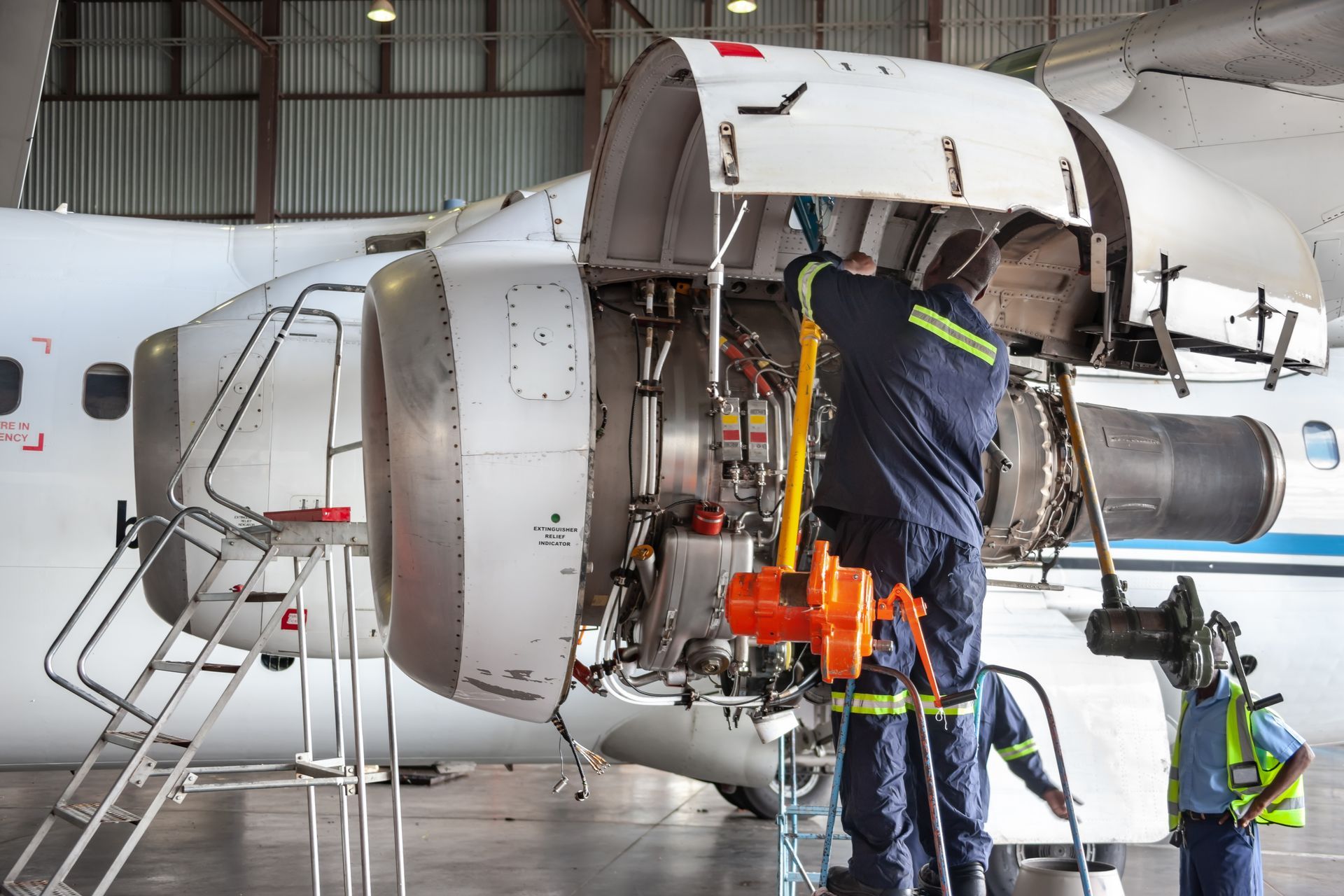How to Break Into Careers in the Space Industry
How to Break Into Careers in the Space Industry
Estimated at a value of £18.9 billion and providing employment for 52,000 people, the space and satellite sector has emerged as a dynamic economic force. With the rapid growth of commercial and government space ventures, it’s an exciting time to pursue a career in this field.
Breaking into the space industry can seem daunting, but it is achievable!
Whether you dream of becoming an astronaut, scientist, engineer, or part of a broader support network, our guide on how to get a job in the space industry can help you chart your course.
We’ll cover more about launching careers in the space industry below, including the jobs and career paths that might interest you.
What Jobs Are In The Space Industry?
From designing rockets to solving global challenges, the space industry offers a variety of career pathways.
The space industry is categorised into
Old Space and
New Space, reflecting different approaches to innovation and business.
Old Space vs. New Space
Old Space refers to traditional aerospace companies that pioneered monumental achievements, like operating the space shuttle and landing humans on the moon.
These organisations are characterised by complex, risk-averse projects that, while successful, have high costs due to their cautious development processes.
New Space represents a modern wave of companies taking a more agile and entrepreneurial approach.
With a focus on reducing costs and embracing risk, these businesses prioritise innovation, competition, and commercialisation, fostering a more dynamic and collaborative space ecosystem.
Roles In The Space Industry
With career opportunities spanning technical, STEM-focused roles, and non-technical paths, the pathways into the space sector are as vast as space itself!
- Technical Roles: Engineers, physicists, and specialists working as design engineers, mechanical engineers, and space medics to develop and support advanced technologies.
- Non-Technical Roles: Professionals in marketing, sales, finance, legal, and graphic design help manage operations, promote products, or navigate regulations.

Breaking Into Careers In The Space Industry
The UK’s space sector is growing rapidly, at an impressive pace outperforming the UK economy. Though there are more opportunities than ever before, with such diversity, it can be challenging to know where to start.
Careers in the space industry typically require a combination of education and experience, while networking can help connect with industry professionals and open doors to career opportunities.
1. Education
A report from the Space Skills Alliance reveals that the space industry is highly educated, with 90% of respondents holding at least a bachelor’s degree.
For roles like physicists and aerospace engineers, 99% have a degree, with very few entering the field via apprenticeships. Most professionals in the space sector come from STEM backgrounds, with physics, geophysics, and engineering being the most common disciplines.
To build a strong foundation for a career in space, focus on subjects like physics, mathematics, and engineering during secondary school. These subjects lead to university degrees in areas such as aerospace engineering, astrophysics, computer science, materials science, and mechanical engineering.
While technical roles often require at least a bachelor’s degree, advanced positions may require a Master’s or Ph.D. in a specific field.
However, the space sector values diverse skill sets, and non-STEM subjects can also play a key role.
For example:
- Politics, Law, and Business are essential for careers in space policy, space law or management.
- Geography can lead to geology or planetary science roles.
- Psychology helps address the mental challenges of space travel.
- Biology and Chemistry are central to Earth observation science.
This is useful for career changers who come from non-STEM backgrounds but are eager to apply their knowledge to the space industry, offering a range of opportunities to transition into this exciting field.
2. Experience
While qualifications hold importance, hands-on experience is often just as crucial in the space sector.
According to the Space Skills Alliance,20% of professionals reported that their highest qualification wasn’t essential for landing their first space job, and 19% believe their qualifications are not directly relevant to their current roles. This highlights the significant value of practical experience and transferable skills.
- Internships: Nearly a third of younger professionals in the space sector have completed internships before securing full-time roles. This aligns with the wider workforce trend, where hands-on experience is becoming increasingly important.
- Graduate Schemes: Many companies, such as Airbus and the European Space Agency (ESA), offer graduate schemes. The ESA’s Young Graduate Trainee programme has been providing about 100 opportunities annually since 1983.
- Space Placements in Industry (SPIN): The Space Placements in Industry (SPIN) scheme has grown in popularity, receiving 3,500 applications for just 60 placements in 2021. Many SPIN participants are offered permanent positions after their internships.
- Military Experience: Many military personnel come from aerospace engineering, electronics, and related technical fields, and have hands-on experience that can transfer well into the space industry.

3. Build Your Network
Building a professional network and staying informed about the latest industry developments are essential strategies.
Attending industry events, conferences, and workshops is a great way to meet professionals and potential employers in the space sector. Look for events like the
UK Space Conference, and
Space-Comm Expo, which offer opportunities to connect with industry leaders.
Organisations like
UKspace promote meetups and networking events where you can engage with the next generation of space professionals. Joining online platforms like
Linkedin or space-specific forums can help you stay in touch with industry updates and career opportunities.
Remember that the space industry is rapidly evolving, so staying informed about new technologies and trends is key to maintaining your competitive edge.
Follow space news sources, like the
National Space Centre, the
UKSA, or
Orbital Today to keep up with emerging innovations and missions.
If you’re at university, make the most of your access to academic journals and publications that can help keep updated on the latest research and breakthroughs. This will help improve your knowledge and demonstrate your commitment to potential employers.

4. Research Positions
When you’re ready to begin applying for jobs in the space industry, explore positions that match your skills, experience, and interests.
Check job boards like
Meritus Job Search, as well as on organisation websites. Many space companies post opportunities on their web pages and professional networking sites.
Always tailor your CV to highlight the skills and experience most relevant to the role, whether technical or non-technical.
Be proactive in seeking positions that offer growth opportunities, even if they seem like stepping stones to your ideal role. The space industry values talent and innovation, so taking the initiative and staying persistent will help you launch your career in this exciting industry.
How We Can Help
We hope our guide on how to get a job in the space industry helps you on your career journey.
At
Meritus, we specialise in helping candidates on the path to a successful career in the space sector.
Whether you’re looking for a technical or non-technical role, our skilled consultants can help position you in a role that you can truly excel in.
Get in touch with us to find out more.












